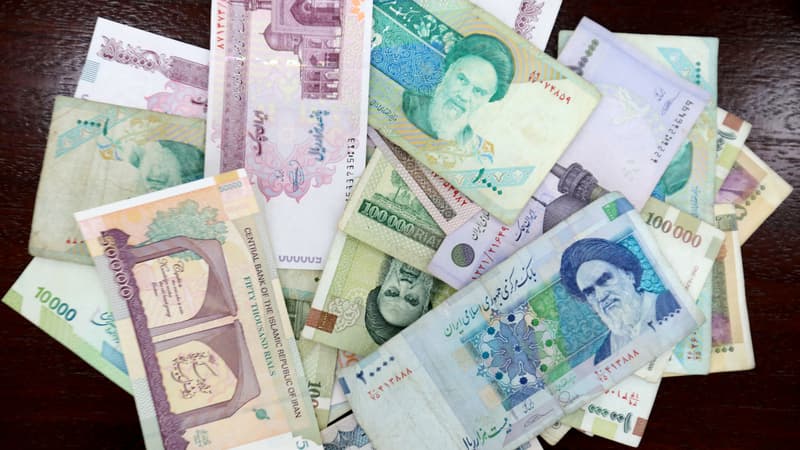Iran’s economy is at risk of falling into hyperinflation and a severe recession, officials and analysts warn, as clerics struggle to preserve stability with little room for maneuver due to the reinstatement of UN sanctions.
These sanctions follow the failure of negotiations aimed at limiting Iran’s controversial nuclear activities and its ballistic missile program. Both sides say diplomacy remains possible, although Supreme Leader Ayatollah Ali Khamenei rejected US President Donald Trump’s offer to reach a new deal. Three senior Iranian officials, who spoke on condition of anonymity, believe Washington, its Western allies and Israel are increasing sanctions to fuel unrest and threaten the very existence of the Islamic Republic.
Since the reinstatement of UN sanctions on September 28, several high-level meetings have been held in Tehran to prevent economic collapse, circumvent sanctions and overcome popular anger, these officials said.
“Protests are inevitable”
Growing disparities between ordinary Iranians and the clerical and security elite, economic mismanagement, rampant inflation and state corruption (reported even in official media) are fueling discontent. “The establishment knows that protests are inevitable, it is only a matter of time (…). The problem is getting worse, while our options are reduced,” warned one of the officials.
Iran is betting on its “resistance economy”, a strategy of self-sufficiency and commercial rapprochement with China, Russia and certain states in the region. Moscow and Beijing support Tehran’s right to peaceful nuclear energy and condemned the US and Israeli attacks on three Iranian nuclear facilities in June. But analysts warn that these solutions may not be enough to protect this country of 92 million people from a new economic shock.
“The government is struggling to maintain economic stability as sanctions disrupt banking networks, limit trade and hamper oil exports – the main source of income – amplifying social and economic pressures,” observed Umud Shokri.
Return of UN sanctions
Iran has avoided the threatened total economic collapse since the United States withdrew in 2018 from the 2015 nuclear deal and the reinstatement of US sanctions. But the return of expanded UN sanctions inflicts shocks that will slow growth, accelerate inflation and the decline of its currency, sending its economy into a recessionary spiral, according to an Iranian official.
After a sharp contraction in 2018, the Iranian economy recovered in 2020, boosted by oil trade with China. But the World Bank now forecasts a fall of 1.7% in 2025 and 2.8% in 2026, compared to the 0.7% growth forecast in April for next year. Tehran still relies on oil exports to China, its biggest customer and one of the few countries that trades with Iran despite Donald Trump’s “maximum pressure” policy. Although sold at a reduced price, crude oil remains vital to Iran, where oil and petrochemicals accounted for around a quarter of GDP in 2024.
Despite the official discourse, an Iranian official acknowledges that global sanctions could stop these sales. Umud Shokri believes that if China tried to ease tensions with Washington, it could demand greater discounts or reduce its imports. Every dollar subtracted from the price of a barrel would cost Iran around $500 million a year, he adds.
rial collapse
The rial has plummeted, fueling massive inflation that is eroding purchasing power, while trade sanctions are driving up prices and undermining investor confidence. Official inflation is around 40%, some estimates even exceed 50%. In September, the prices of ten basic products (meat, rice, chicken) increased by 51% in one year. Beef now costs 12 dollars (10.4 euros) per kilo, inaccessible for many families.
The religious elite fears that discontent will lead to a new popular uprising, according to another Iranian official.
The private sector, for its part, fears the effects of greater isolation and new Israeli attacks. “With the constant fear of an attack and the uncertainty about my exports, how can I maintain my activity?” asks Mehdi, a fruit exporter.
Source: BFM TV


